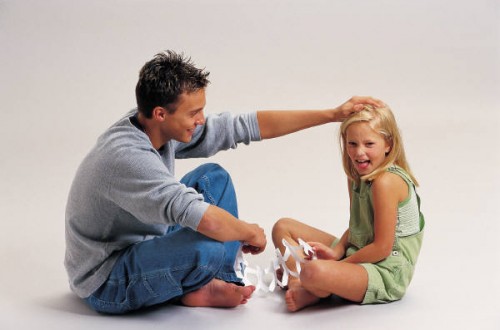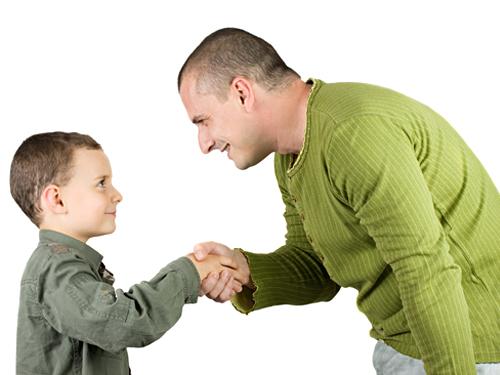Instilling Concern and Respect For Others In Children and Teens
[This is really not just a Christmas article! It’s an article which makes most of us very contemplative. It is about an exceedingly important part of parenting – which happened to be written at Christmas.]
A lot of articles this time of year (Christmas) begin with the phrase “I like Christmas.” It’s catchy and a good opener.
Me? I like to watch Christmas. I’ve seen a few children and their parents grow up with Christmas.
You would be surprised at all the mileage a pediatrician can get out of Santa Claus. (Or maybe you already have discovered yourself).
Attention diverters like “are you going to leave anything for Rudolph?” and “have you seen Santa yet?”
Teaching statements like “Who’s coming next week?”
And things bordering on threats like “Santa is watching”, and “you better let Santa see a smiling face.”
Do you ever watch children and wonder how they are developing, how they will be next Christmas, what they are turning into as people, what crises they are coping with, their self-image and things like that?
I do. It’s my job.
Some people are surprised at just how much an overall advocate for children a pediatrician is.
Recommending, instructing and sometimes even coaxing about health maintenance, immunizations, growth experiences, behavior training, and things … and sometimes an appearance in court.
I watch the babies born in the hospitals at Christmas time go out to their parents in stocking caps or oversized “socks” and realize that if they have been in this area for long enough, their parents probably were taken out to their parents in a sock too.
Emotions are at a high point at this season, both productive and unproductive. Sometimes these little ones grow up to be less than what “Santa Claus” would like them to be.
We all read about a family who had someone enter their house while they were away and stole their food, presents and things. The community rallied and replaced their physical things, and, fortunately, their “best gifts” were not where they could be stolen.
This season a woman in our community, probably having become overwhelmed with her own problems, just about destroyed not only the holiday season but possibly an entire life of another family.
You may remember that one of the hospitals, with good security, reported a baby was stolen. A woman had lingered about the hospital trying to make an opportunity to walk away with a newborn and she did. Fortunately a “lucky” chain of events led to a rapid recovery of the child.
Unfortunately, not all the stories end happily. A youngster that I had been following for several months, in and out of foster homes under DCFS (state) custody, had been abused.
After being placed back in the “home” he was beaten to death, reportedly by a male companion to the mother. He was also seen by his grandparents shortly before his death.
Not very nice things to think about in a Christmas article, but they are things which I have had to think about lately.
And what I have been thinking is: “All of these people who did these terrible things had Christmases of their own as children!”
But possibly no one gave them one of the best gifts … “A deep respect for others.”
But let’s turn to other things — things in your family. If you exchange gifts at Christmas time, are there some things which should not be left out?
Several of my patients’ parents have a notebook with a file on each child, a sort of family management book. Some are the size that can be carried in a purse and “worked on” anytime there is even a small moment, like while waiting in lines or in offices.
Each section begins with a child’s name and fairly current picture. Then, in pencil of course, there are current clothes sizes and other data.
But, most important, are the lists of assets, liabilities and current goals.
Sometimes it’s difficult to think of assets. But reading statements like “sensitive to others,” “thoughtful,” “smiling,” “eager to please,” athletically strong,” etc. can provoke good thoughts during your stressful times.
The next part is probably the most useful: the things to work on or goals to achieve.
For example “Brian needs to be more independent” might be an excellent heading and under that “teach Brian how to fry and egg” could be a plan for this week.
All successful executives and businessmen have learned this principle of management. It’s no less important or effective at home with “family.”
With presents all over the house, sometimes it’s difficult for children to learn the giving part of the season.
Even an infant, while held in parents’ arms, can physically hand a present to someone.
An older child can blossom at being a “messenger of glad tidings.” “Go and give mommy this kiss from me.” Cause most likely mommy will send him back with a return receipt!
Children love to help make things and especially deliver them to neighbors.
But do you see where all of this I am saying is leading? Right, learning the concern and respect for others, their property and persons, is not an accident! It really does take specific instruction either directly or by example over long term.
None of the problems I mentioned before may have happened if this parenting concept had been followed.
Think about what gifts each of your children truly need. Really consider a family management book. It’s my Christmas present idea for you.
I wish you all a joyous holiday season, with all of the “Best Gifts.”


